-
About
- About Listly
- Community & Support
- Howto
- Chrome Extension
- Bookmarklet
- WordPress Plugin
- Listly Premium
- Privacy
- Terms
- DMCA Copyright
- © 2010-2025 Boomy Labs

 Beth Kanter
Beth Kanter
Listly by Beth Kanter
The context to the discussion at the Global Philanthropy Conference and Resources Shared
Source: http://www.bethkanter.org
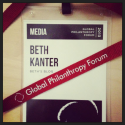
I was honored to be invited to cover this year's Global Philanthropy Forum, a community of donors and social investors committed to international causes. The annual conference helps inform, enable and enhance the strategic nature of their work. This year's conference, "The Future We Make" had four themes - strategic philanthropy, modern day slavery, agriculture and nutrition, and education, learning, and employment.
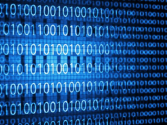
Big Data has the potential to transform development and accelerate social progress around the world, but there are issues surrounding understanding, ownership, privacy, capacity, measurement and more that need further dialogue and discussion. The Skoll ...
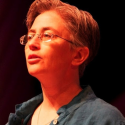
Lucy describes what needs to change in philanthropy to embrace data and why it is important

Editor's note: Darin McKeever is a deputy director in the Global Policy & Advocacy division at the Bill & Melinda Gates Foundation, where he leads the foundation's charitable sector support team. This article was published as part of a debate on Big Data and in advance of the Skoll World Forum in April, [...]
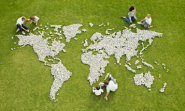
Every day humanity adds approximately 2.5 quintillion bytes of data to our collective store of knowledge. Looking over this treasure trove, scientists, financiers, and business leaders are justifiably giddy about the potential of Big Data. For the nonprofit community, Big Data also offers immense potential.

Foundations put a lot of demands on charities to prove that their programs work and that their grant money has been put to good use, but some think that puts an unnecessary burden on grantees and foundation staff. Watch a live panel discussion today at 6 p.m. U.S.

IssueLab, a service of the Foundation Center, provides free access to thousands of case studies, evaluations, white papers, and issue briefs produced by the social sector.
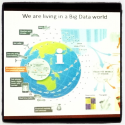
With the release of the "Measuring the Networked Nonprofit: Using Data to Change the World, I'm looking forward to participating in the conversation about how nonprofits can use measurement, data, and learning to for social change. We are living in a "Big Data" is a them
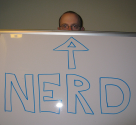
Yesterday, KD Paine and I delivered an NTEN Webinar on measurement based on the ideas in our new book " Measuring the Networked Nonprofit: Using Data to Change the World." We started off discussing the recently released report from NTEN/Idealware that found that nonprofits collect lots of data, but don't look at it.
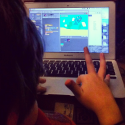
I will be teaching a hands-on data visualization workshop for absolute beginners. Participants will learn how to build compelling maps, charts, graphs, and data visualizations, and get personalized recommendations for next steps based on their interests and skills.
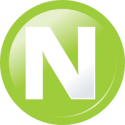
In February we introduced you to NTEN's Communities of Impact (CoI), a pilot program whose 19 participants are spending this year looking at ways nonprofits measure, learn from, and share their data. One of the CoI cohorts recently launched a survey to better understand how nonprofits and NGOs around the world use data.
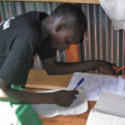
GlobalGiving's storytelling project turns anecdotes into useful data. A couple of years back, an American visitor to the slums in Kisumu, Kenya's third largest city, handed out bumper stickers asking an open-ended question: "What does your community need? Tell us." That got people talking.

Note from Beth: Last month during one of our book talks for " Measuring the Networked Nonprofit: Using Data to Change the World, " at TechSoup Global, Rachel Weidinger from Upwell came up to say hello.
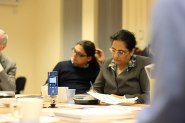
Below are some questions but first the context: Last night I was working on the first of a series of conversations about how Birmingham will feed itself way into the future. The New Optimists Forum is organised by Kate Cooper who has the very powerful idea of getting groups of scientists from different disciplines and policy makers to think about this thorny problem.

NodeXL Graph Gallery, a collection of network graphs created by NodeXL.

Google announced this week that it's giving a $3 million Global Impact Award (part of a series of grants given to nonprofits changing the world with technology) to help three anti-trafficking organizations--Polaris Project, Liberty Asia, and La Strada International--create a Global Human Trafficking Hotline Network.
